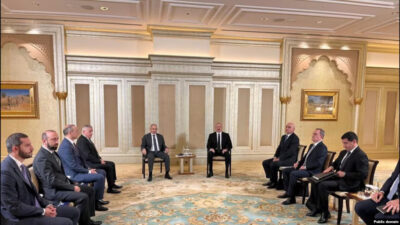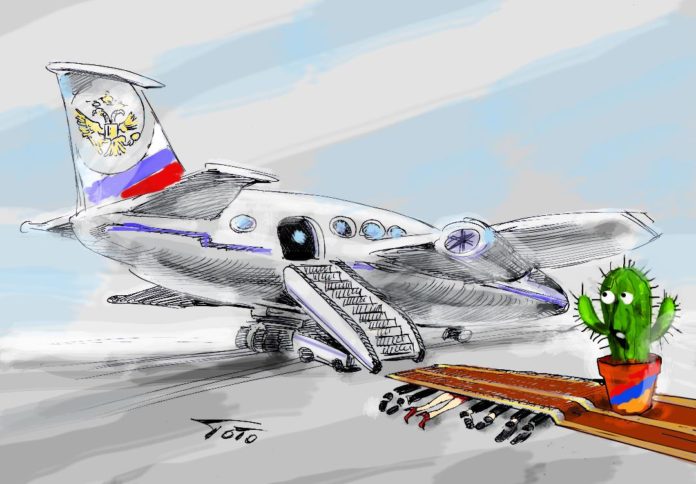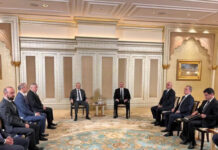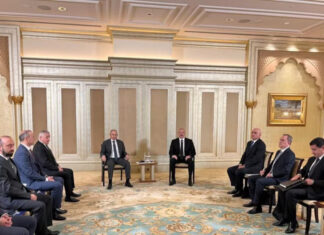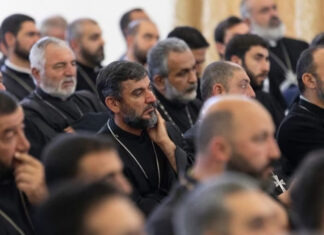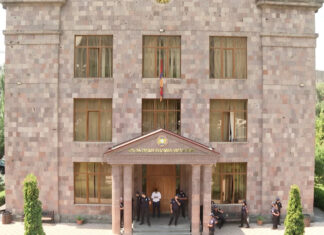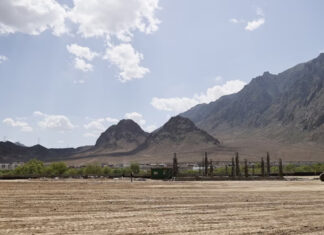As Armenia was engulfed in internal squabbles, a Russian bomb was lobbed into the political forum which mushroomed to cover the entire horizon.
Since the middle of March, the entire state apparatus, with its ministers and parliament members, was mobilized to criticize His Holiness Karekin II, Catholicos of All Armenians, for a single sentence in which he asked for house arrest for former President Robert Kocharyan, instead of prison, in light of the danger of COVID-19.
The controversy had hardly died down when the same establishment, aided and abetted by a friendly press, had found another piece of trivia to turn into a huge political controversy: a studio technician had left a mike live 15 minutes before the prime minister’s planned nationwide address last week. Recriminations were made and resignations demanded.
Unfortunately, that kind of mobilization of forces against minor issues reveals nervousness by the administration. One begins to wonder if the new government believes itself to be so weak that it is shaken by such trivial problems.
Those issues should fade into the background as Sergey Lavrov, Russia’s foreign minister, detonated a much larger bomb for Armenians to worry about. The attack came as a surprise but in fact, had been in the making for a long time.
Lavrov’s public statement puts Armenian-Russian relations into a new perspective instantaneously.
